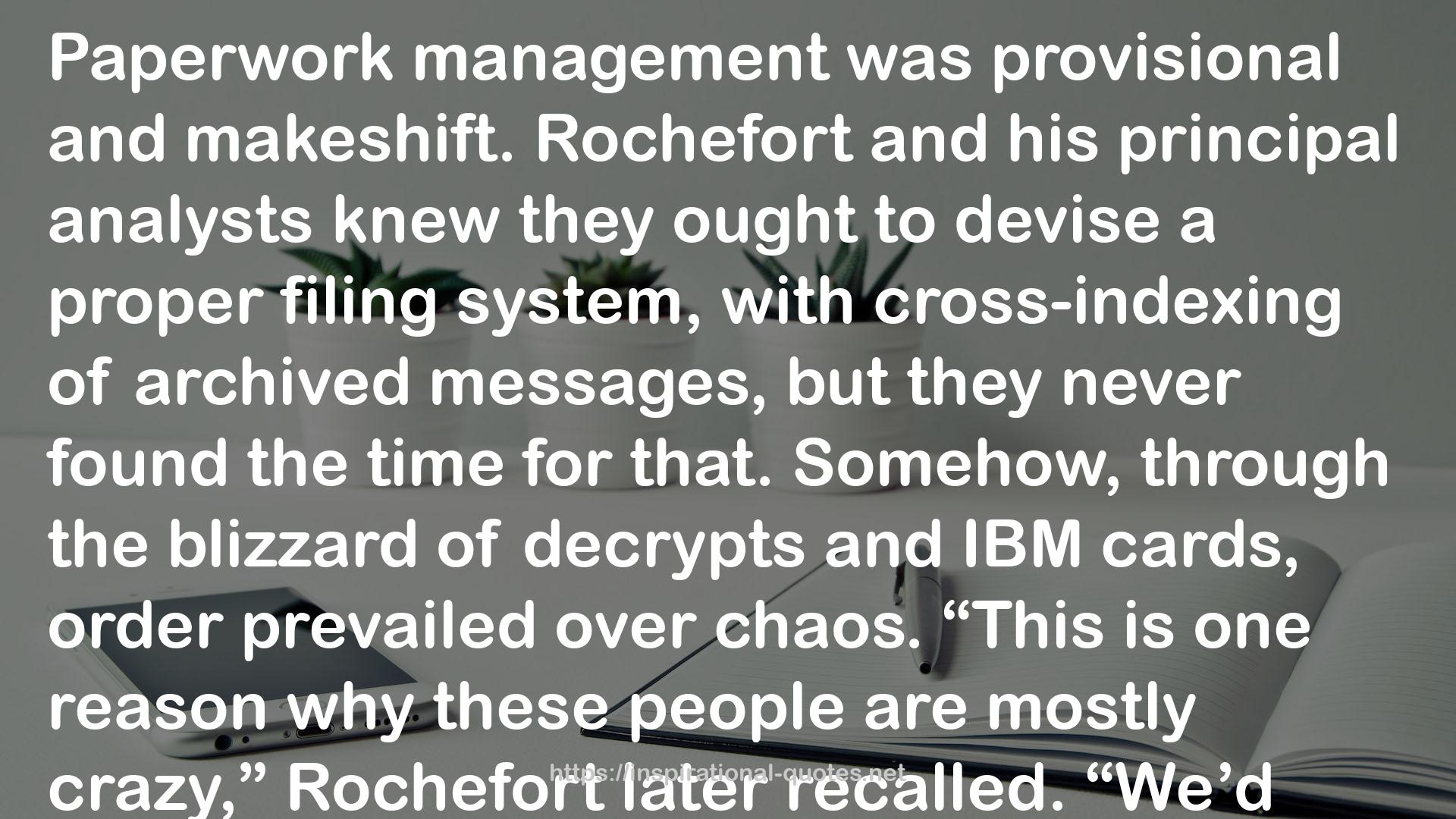" Paperwork management was provisional and makeshift. Rochefort and his principal analysts knew they ought to devise a proper filing system, with cross-indexing of archived messages, but they never found the time for that. Somehow, through the blizzard of decrypts and IBM cards, order prevailed over chaos. “This is one reason why these people are mostly crazy,” Rochefort later recalled. “We’d have no problem at all.” You’d mention something and you’d say, “Now wait a minute. Back here when they were around Halmahera on their way down to a landing at Port Something-or-other, there was a message like this. Let’s have it.” And they’d look in this pile of junk and they were able to locate it. . . . And then of course, you’d get a new one here and this leads to another thing over here and this leads to another thing and this is how you fill the whole works up. One letter leads to another and that leads to a third one and so on. Then that’s when your memory comes in very handy. Holmes added that a cryptanalyst “needs only time, patience, an infinite capacity for work, a mind that can focus on one problem to the exclusion of everything else, a photographic memory, the inability to drop an unsolved problem, and a large volume of traffic. "
― Ian W. Toll , Pacific Crucible: War at Sea in the Pacific, 1941-1942
